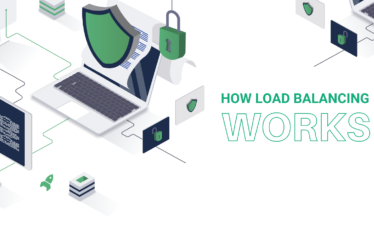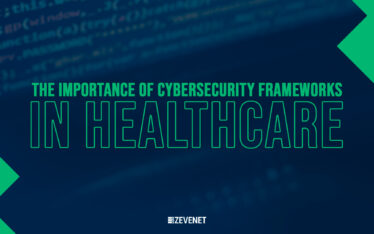
Cyber threats are becoming more persistent and severe than ever.
As technology advances, cyber attackers are developing newer generations of dangerous malware and improving their malicious attacks. As a result of this fast-evolving rate of cybercrimes, traditional antiviruses have become ineffective.
Therefore many businesses are opting for a better and more reliable means of cybersecurity protection.
An example of such is the Next-Gen AntiVirus.
This article will discuss extensively what the Next-Gen Antivirus is and why it is essential for your business.
What is Next-Gen Anti Virus (NGAV)?
Next-Gen Anti Viruses were developed as a better alternative to traditional antivirus to combat modern cyber threats. They make use of advanced technologies and proactive techniques to detect and eliminate potential threats. These technologies include artificial intelligence, threat intelligence, machine learning, behavior analysis, data science, and analytics.
In contrast to traditional antiviruses, Next-Gen antiviruses are behavior-based and not solely definition- or signature-based. As a result, their activities go beyond using IP addresses, URLs, virus indicators, etc., to detect malicious attacks. Instead, they study the patterns of behavior and activities of the attack – what the malware is trying to do.
This makes it possible to detect possible threats that might have been unidentified by traditional antiviruses. After that, they determine the root cause and rectify any damage the malicious software might have caused.
What Are the Differences Between Next-Gen Anti Virus and Traditional Antivirus?
Next-Gen Antivirus software came about because of the inefficiency of traditional antivirus software. Hackers have used these loopholes to attack several organizations’ network endpoints by bypassing their traditional antiviruses.
Traditional antivirus software works by scanning files and directories, identifying specific signatures of malware, and comparing it to its database of identified malware. After which, the software devises techniques to use to eliminate the malicious programs.
Unlike NGAV, traditional antiviruses focus on the malicious software’s signature or definition and not its activities. As a result, files that do not appear as malware goes undetected even if they perform malicious actions.
One major issue with traditional antiviruses is that you must constantly update the database to stay protected. Also, it cannot detect recent malicious programs. The database only contains older and already-identified programs; thus, any new malicious program will go undetected.
Most modern cyberattacks, such as memory-based attacks, and macro-based attacks, do not introduce malicious files to a system. Thus, it becomes difficult for them to be detected by traditional antiviruses that depend solely on signature-based detection.
In contrast, the Next-Gen Antivirus can detect both known and newer cyber threats. It performs signature-based detection for known malware and uses advanced technologies like behavior analysis to identify newer ones via their activities. Therefore, it becomes hard for cyber attackers to penetrate your organization’s network.
Why Does Your Business Need Next-Generation Anti Virus?
Contrary to popular opinion, cybercriminals do not only target large businesses and organizations. They also focus on small- and medium-sized ones as well. Sadly, these businesses have become their primary target because they have failed to take measures to secure their network. Thus, when there is an attack, most of them, if not all, find it hard to recover.
Using Next-Gen Anti Virus software is an excellent way to secure your organization’s network from intruders. Cybercriminals are aware of the lapses of the traditional antiviruses and are using them to breach networks. If you genuinely want to create a strong network perimeter security, you should use Next-Gen Anti Virus.
Below are a few benefits of using Next-Gen Antivirus software in an organization.
Threat Notifications: NGAV will automatically notify your security team in case of a cyber-attack. This allows them to take fast measures to shield the network of the company. You can also choose to customize the notifications if you have prior security incident processes to follow.
Threat Detection and Rectification: Most modern threats appear safe and thus, are undetected by the traditional antivirus. Later, they turn malicious and breach the network of the organization. This is not the situation with Next-Gen Anti Virus software. They study the behavior of every file and program, and if anyone poses a risk, they eliminate it quickly. They also rectify all the alterations that might have happened as a result of the data breach.
Communication: NGAV also has tools that allow for quick communication and collaboration between devices on a network. In cases of cyber-attacks, the antivirus sends a signal to all the devices on the network in the organization to identify and terminate the malicious programs.
Advanced Technologies: Traditional Antiviruses cannot offer maximum efficiency in securing the network of an organization. They depend solely on their database of identified malware.
If a new threat surfaces, it goes undetected because it is not in the database. Also, if the database is not updated regularly, even old malware can breach your perimeter security.
Next-Gen Anti Virus uses artificial intelligence,
behavior analysis, machine learning, etc., to detect suspicious activities in a system. If it detects any malicious behavior, it immediately flags and terminates the activities.
Behavioral Analysis: Next-Gen Anti Virus monitors and analyzes every process in a system. If it detects any suspicious behavior, it ends the process immediately. This makes it easy to detect cyber-attacks that make use of file-less malware techniques.
Also, NGAV can study the pattern of operations in an organization and detect behaviors that seem inconsistent with the usual activities. For instance, it can learn the work periods in an organization and tune itself to be familiar with the time frame. Thus, if it detects any activity outside those periods, it scrutinizes it thoroughly.
Proactive protection: Unlike the traditional antiviruses, Next-Gen Anti Viruses are proactive in detecting potential threats and providing response processes. They protect the network of an organization and prevent external access from intruders. By investing in the Next-Gen Anti Virus, businesses can detect and prevent attacks from cybercriminals even before they materialize.
THANKS TO:
Jessica



